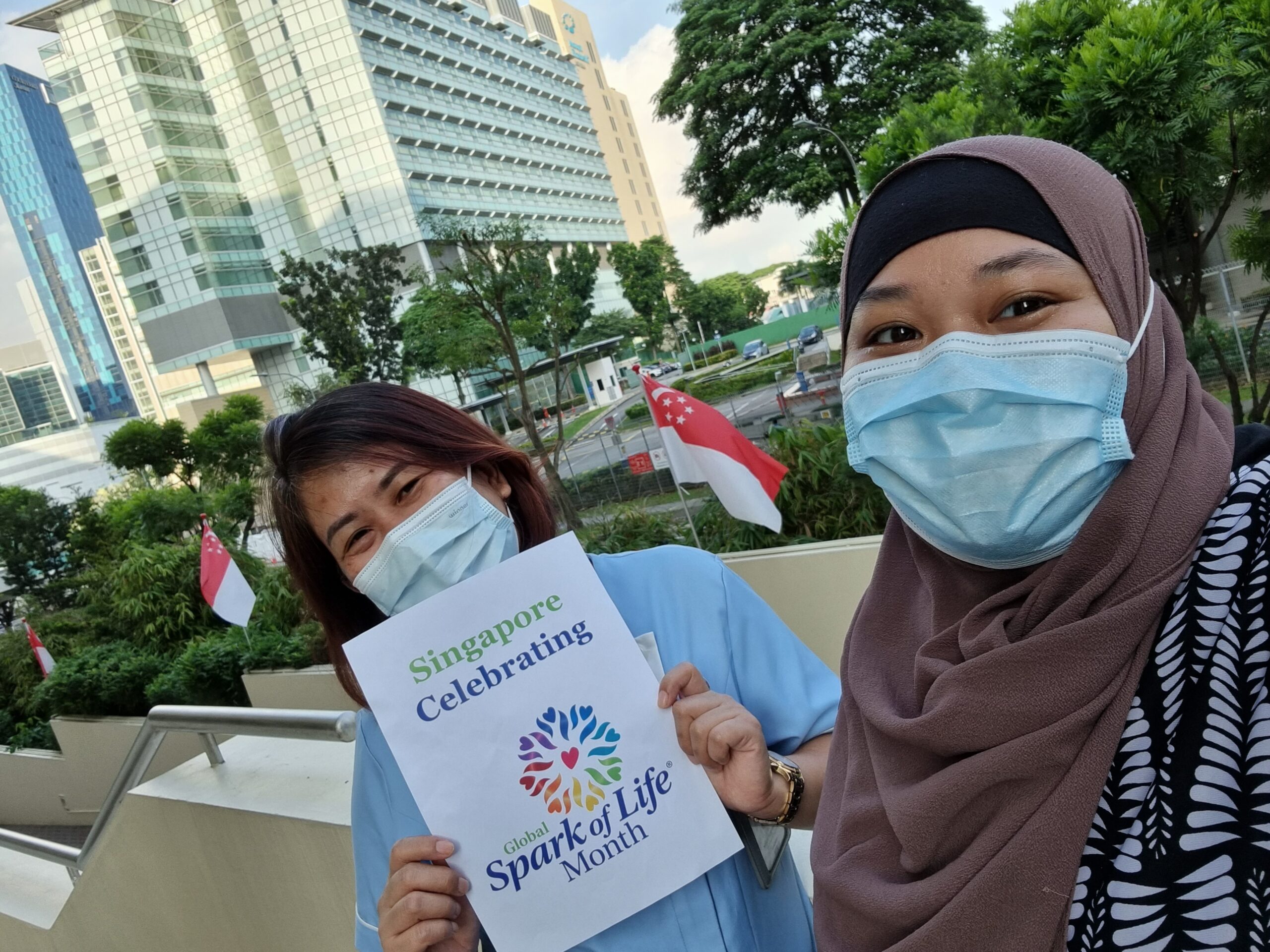Best Practice in Singapore
Spark of Life Model of Care:
a neuro-rehabilitative focus in Singapore
Nur Sahara Binte Kamsani, Spark of Life Master Practitioner, Medical Social Worker, RenCi Nursing Home
Nang Soe Mon Oo, Spark of Life Master Practitioner and a Nurse Clinician (formerly RenCi Nursing Home, now residing in Finland)
18th March, 2024
The Spark of Life Model of Care is a unique approach to enriching another person’s life, based on love, empathy, and respect. The Spark of Life Rehabilitative Program (one aspect of the model) educates facilitators in the skills for neuro-rehabilitation to provide the opportunity for people with dementia to experience improvements in their cognitive and social skills.

We became Spark of Life Master Practitioners in 2016. It was really inspiring and refreshing to see the endless possibilities of positive connection that we are able to facilitate. We have provided in-house education to our colleagues, specifically on the Rehabilitative Program since 2017. We witnessed possibilities beyond imagination in our program members. With the connection and specialised skills, we were able to facilitate neuro-rehabilitation of our elders, which enabled them to sit out of bed and even join us to visit the beach after a long time being bed-ridden. Families joined in and expressed their appreciation and gratefulness for the opportunity. We saw tears of happiness and moments of love, from these family members which was very special and moving.
The Spark of Life Rehabilitative Program was piloted for 5 weeks with six residents with dementia. The Bradford Wellbeing profile and Challenging Behaviour Scale were used to evaluate the wellbeing of the club members before and after this program. Wellbeing profile scores of all club members were increased. The indicators show that the higher the score, the better the wellbeing of the individual.
Positive feedback was received from residents and their families as well as care staff from the nursing home. The team strongly believe that the Spark of Life Rehabilitative Program enables care staff to shift their mindset from impossible to possible. With the positive and encouraging outcomes from the pilot program, the team has decided to continue with the Spark of Life Rehabilitative Program with the full support from our organization management team.
Our colleagues and management were spurred on by this possibility and have been very supportive and encouraging towards the Rehabilitative Program. They look forward to helping us prepare our Program Members at every session. It is very heartening indeed.
We incorporate Spark of Life Communication Skills into our daily interactions with other residents, colleagues and community partners at work. This interaction of love and genuine desire to bring the best out of people changes my work attitude and improves our work relationships.
As Spark of Life Master Practitioners we have been empowered with the regular support from Dementia Care International. This encourages us to connect compassionately with our colleagues who are caring for the elders with dementia. We are also given regular updates and refreshers that helps us to stay sharp and competent in providing the best care for our residents. Our role is to encourage our colleagues to enhance their ability to care, communicate and connect with our elders with dementia. It’s a rewarding and uplifting feeling.
We also use Spark of Life Five Core Emotional Needs during team discussions to solve challenging behaviours of residents. They enable care staff to see the person behind the behaviour and effectively address the emotional needs as a first line intervention.
We are grateful for the continuous education and support from the leaders of Dementia Care International as they ensure we are working in the right direction in implementing this program.
